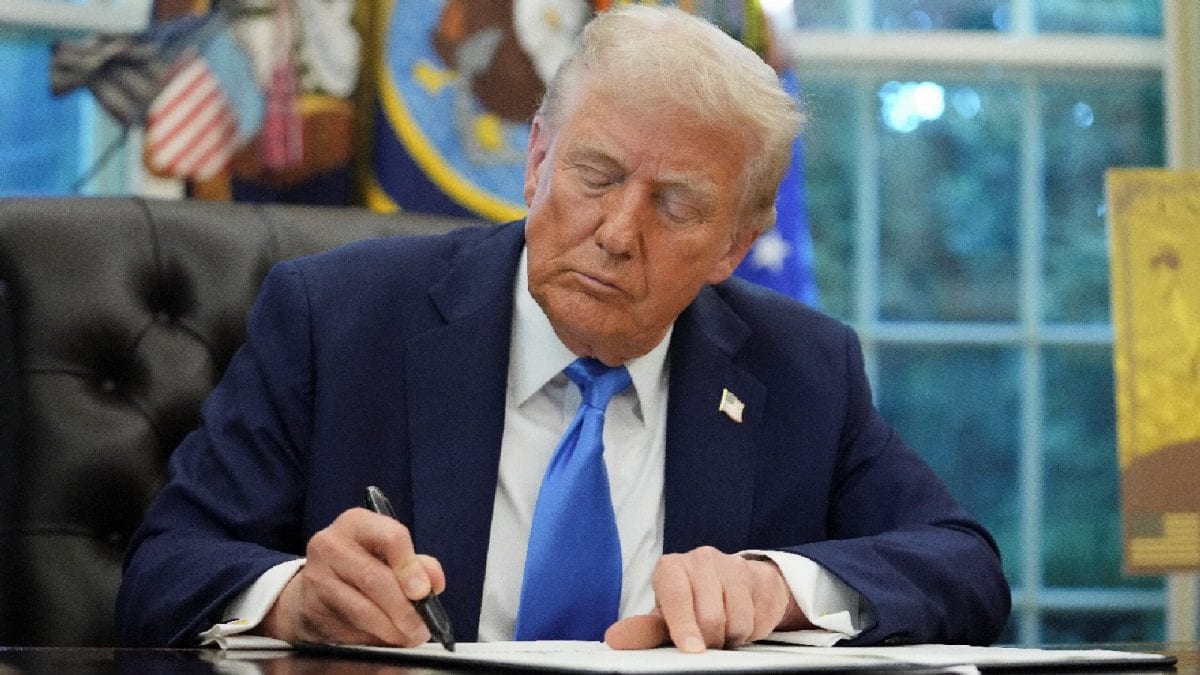Last Updated:
The Trump administration asked the Supreme Court to review the constitutionality of ending birthright citizenship, challenging the 14th Amendment and a federal judge’s injunction.

President Donald Trump had signed the executive order on his first day back in office on January 20 directing agencies to refuse to recognise the citizenship of U.S.-born children who do not have at least one parent who is an American citizen or a lawful permanent resident, also known as a “green card” holder. (Image: Andrew Harnik/Getty Images/AFP)
The Trump administration on Friday asked the US Supreme Court to review the constitutionality of President’s executive order for ending birthright citizenship.
Despite more than a century of understanding that the 14th Amendment confers citizenship on people born in the United States, the Trump administration told the Supreme Court that notion was “mistaken” and that the view became “pervasive, with destructive consequences,” CNN reported.
Recommended Stories
“The lower court’s decisions invalidated a policy of prime importance to the president and his administration in a manner that undermines our border security,” Solicitor General D John Sauer, the administration’s top appellate attorney, told the Supreme Court in the appeal. “Those decisions confer, without lawful justification, the privilege of American citizenship on hundreds of thousands of unqualified people.”
President Donald Trump had signed the executive order on his first day back in office on January 20 directing agencies to refuse to recognise the citizenship of U.S.-born children who do not have at least one parent who is an American citizen or a lawful permanent resident, also known as a “green card” holder.
In July, a federal judge in New Hampshire issued a preliminary injunction blocking the implementation of Trump’s order.
What Is Birthright Citizenship?
Birthright citizenship is enshrined in the 14th Amendment, ratified in 1868 in the wake of the Civil War to ensure citizenship for formerly enslaved people. It states, “All persons born or naturalized in the United States, and subject to the jurisdiction thereof, are citizens of the United States.”
The clause has long been interpreted to mean that anyone born on US soil is a citizen-regardless of their parents’ immigration status. This interpretation was affirmed by the Supreme Court in 1898 in United States v. Wong Kim Ark, which ruled in favor of a man born in San Francisco to Chinese immigrant parents who were denied reentry after traveling abroad.
With few exceptions, including children of foreign diplomats, birthright citizenship has remained a bedrock of American immigration and constitutional law.
Washington D.C., United States of America (USA)
September 27, 2025, 04:59 IST
Loading comments…
Read More



